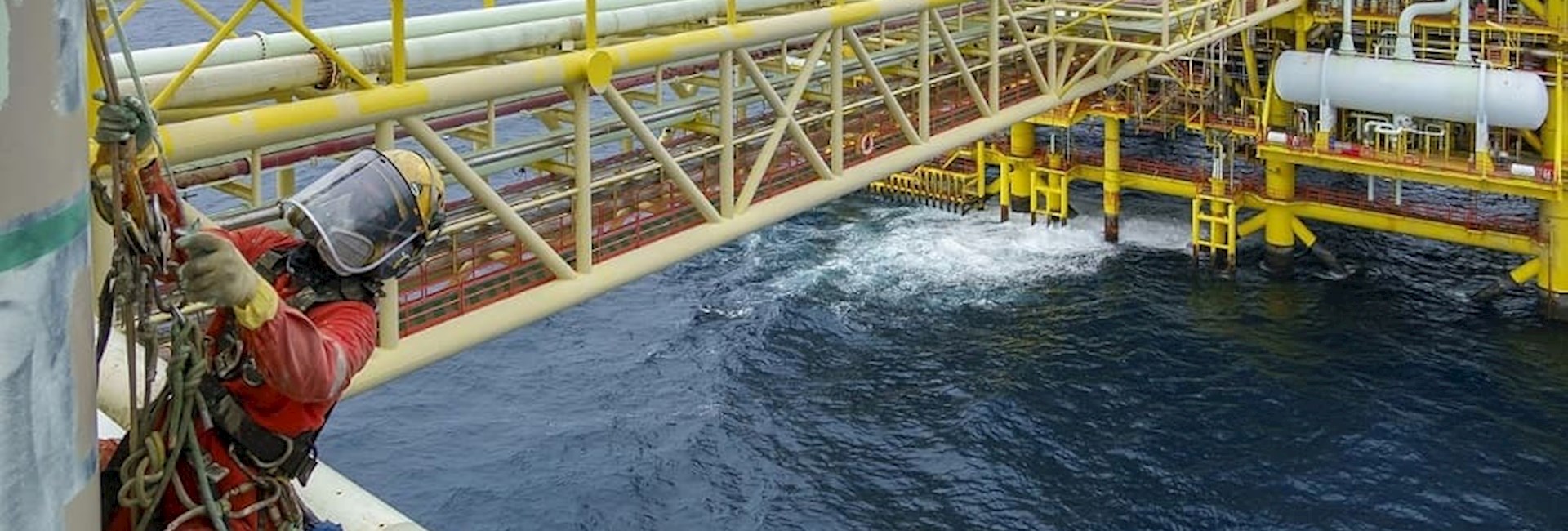What do offshore workers do? And how much do they make?
Energy

Energy
In the oil and gas industry, offshore worker roles are wide-ranging. For example, as an offshore driller, you might operate and control the drilling machinery that extracts oil from the seabed. Offshore oil workers can expect to earn between $50,000 - $300,000 per year, depending on the role.
Working offshore in the oil and gas sector can be a very rewarding career. An offshore worker’s salary is typically above national averages, and some specialist roles can be very lucrative.
Entry-level roles in the industry typically pay between $50,000 - $80,000 a year, whereas more specialised roles pay around $75,000 - $100,000.
As an offshore drilling engineer, you could expect to earn a salary of around $55,000 - $65,000 per year. On the highest end of the scale, a specialist role like a drilling consultant would earn between $143,000 - $305,000.
Geologists working offshore could expect to earn between $65,000 - $183,000, and helicopter pilots earn around $75,000 - $150,000.
Most people who become offshore rig workers enter into the industry by completing an engineering apprenticeship. Those who already have experience in engineering or construction often apply to companies directly, demonstrating their transferable skills.
To work offshore, you need to be over the age of 18. You also need to have an offshore medical certificate and emergency response training. Once you’ve been offered a position offshore, you’ll need to undertake Basic Offshore Induction and Emergency Training (BOSIET).
To apply for an engineering apprenticeship, you’ll need to have a General Certificate of Secondary Education (GCSE) in English and Math or equivalent qualifications. Physics and Chemistry are also desirable subjects.
Alternatively, you may be able to enter the industry as a roustabout or roughneck, undertaking a variety of tasks and learning on the job, before becoming qualified to work in a more specialist role.
To become an offshore worker, you need to have good attention to detail. Some offshore work can be dangerous, so you’ll need to have a thorough approach and be able to follow health and safety guidelines. You’ll need to work well with others and have good observation and reporting skills.
Due to the often-physical nature of offshore work, you’ll need to be physically fit and able to stay calm in stressful situations. In senior positions, you’ll need to demonstrate strong leadership skills and the ability to monitor your own and others’ performance.
In 2019, total revenues for the oil and gas industry were $3.3 trillion. As such, there are many opportunities for career progression in the sector. After joining the industry through an entry-level role like a drilling engineer, you could be promoted to a drilling consultant or an offshore installation manager.
Alternatively, you may decide to set up your own business and work as a contractor with other firms to negotiate a higher rate of pay.

Offshore work typically involves working on oil rigs in the sea. In as, offshore workers are usually involved in exploring and extracting mineral resources from the seabed. The work can be physically demanding and undertaken in difficult conditions like extreme weather. However, the rewards can be very satisfying.
Offshore work can be broadly categorised into four areas: exploration, construction, operations and management. Offshore oil workers can perform a range of duties including drilling, surveying, diving and carrying out health and safety checks.
Learn more about the lifecycle of an oil and gas project.
Offshore rig workers carry out a range of duties:
Working across upstream, midstream and downstream operations, Brunel possesses an unrivalled understanding of the conventional energy industry, its challenges and the key skills and people which operations need to perform.